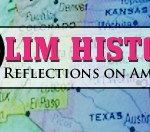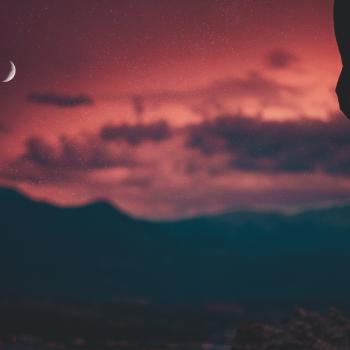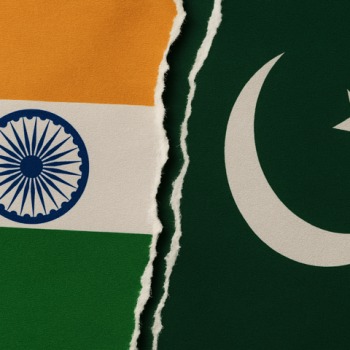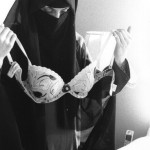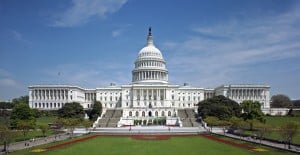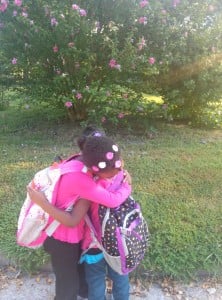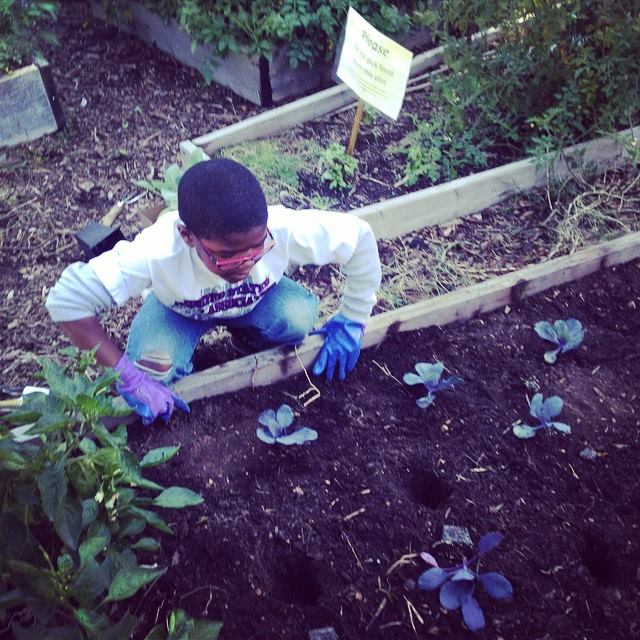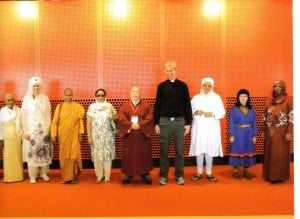Muslim History Detective’s log, 10/17/12:
Conference of the Elders: They’re at It Again.
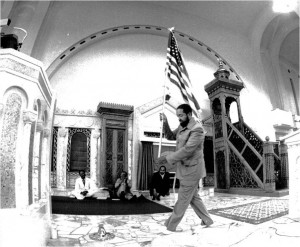
The elders are at again—Africans, Americans, Muslims, and women among them, just like me—some living and some long since passed away, but all having toiled here in this republic.
“Be conscious of how you arrived at the moment,” they warn, in variant ways, reminding me of what is at stake.
I know that on Election Day, my voting booth will be crowded—with their words and their struggles—with their presence. You see issues at the forefront during election years are among the things that seem to draw the elders out in full force.
Lord knows I have tried to keep them at bay, not out of lack of respect or understanding, but just to keep my stress levels down; their expectations require a lot of heavy mental lifting for which one has to be adequately prepared.
I have cleverly tried to avoid engaging in the entire political season, with its partisan bickering and sensationalism, despite the elders’ worthy best efforts to get me to take a stand on the issues that are affecting our nation and the world.
You see, they lived and died by what they believed. They gave a voice to the voiceless. They spoke out against the injustices hammering away at the “indigent down in the dust.” They expect the same from me. But what person in their right mind wants to get caught up in this political hornets’ nest?
Just when I thought I was home free of their call to action, the compelling words of Mayor Julian Castro pulled me back into the fray, overtaking me unexpectedly as I was waiting for First Lady Michelle Obama to speak during the Democratic National Convention. It was the only access to the election season circus I was going to allow myself to watch—and even that was online, as I did not dare turn on the television and risk overexposure to the “pundit class.”
I mean, who needs high school all over again–the bickering, the name calling, the cliques, and the “I know you are but what am I?”
It could be funny, if real people’s lives were not at stake, lives like those of my octogenarian grandmother who worries about cutbacks on Medicare and Social Security that could mean the difference between life and death for some, or that of my younger brother, a decorated Marine, who is among those who risk life and limb to protect our American freedoms.
“The American dream is not a sprint, or even a marathon, but a relay,” Mayor Castro said that night.
“Our families don’t always cross the finish line in the span of one generation. But each generation passes on to the next the fruits of their labor,” he said.
His words resonated deeply with me and took me over the edge in the realization of it all: Destiny never releases its hold; you cannot outrun the good that was meant only for you to do, even if it feels like it is squeezing the life out of you at times.
And then, there it was.
The wormhole the elders who have passed on needed in order to burst through time and space into my full consciousness–like waters rushing a worn down river dam during a hurricane.
It is not as if they are not always with me, working on me, but now they are really with me—working with laser sharp focus–making sure I do not drop the baton in this perpetual race to improve the human condition.
And this time around it is not the usual suspects taking the lead, compelling me to effect change through the pen.
Elder John Leland, the Baptist, is here pushing me to stand up for the civil and religious rights of all of the American people, not just those of my own faith or race.
He is well within his right to do so.
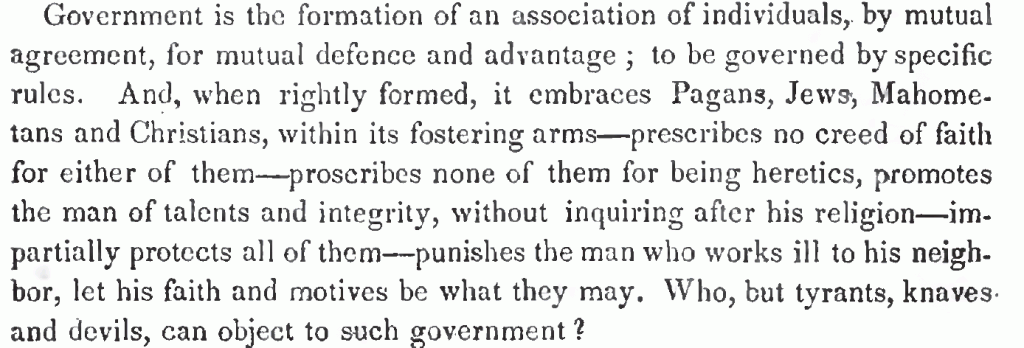
He fought hard for religious liberty in America, even influencing two Founding Fathers who later became presidents and helping to secure the Bill of Rights. He could have just concerned himself with Baptists, who were facing religious persecution at the time, but every chance he had he included religious minorities that did not yet have a representative voice—often specifically naming Muslims among them.
Elders from the Clotilda, the last slave ship to be illegally sneaked into America, are calling out to me now too. They arrived on U.S. soil long after our nation banned importation of slaves but not before slavery had ended within its borders. At least one of these unfortunate African captives on board, with even children among them, was a Muslim woman.
“Rasheeda,” they seem to plead, using my middle name reserved only for those closest to me, “Never be satisfied having a right for just yourself; be action-oriented in making sure others are not maliciously disenfranchised.”
They would know the feeling.
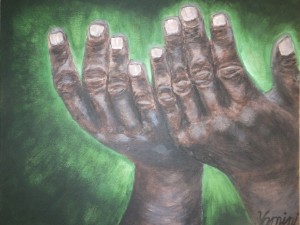
In the elections of 1874, some of these same Africans, now freedmen, walked from voting station to voting station, facing voter intimidation all along the way, until they found a place that would allow them to cast their votes. So badly they had wanted this right that at one point during the harassment they “put their hands together, raised their arms to the skies, and prayed to God to let them vote.”
Elder Sojourner Truth, the famed black abolitionist and women’s right activist, is present also.
“Aren’t you a woman, Precious?”—I can hear her asking.
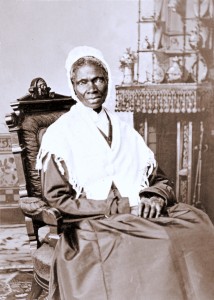
At an 1851 women’s convention, she responded boldly to claims of female inferiority based on women not being male like Christ. Her words left the stunned audience, which had not been comfortable with a “darkey” representing them, in tears and cheers. “And how came Jesus into the world?” she had asked, and then responded, “Through God who created him and the woman who bore him. Man, where was your part?”
I feel the urge to whisper back to her across time and space, “I hear you, elder Sojourner.” Her presence is urging me to stay vigilantly protective of our gains as women, to realize there is still more to be done, and to always, always be conscious of what can be lost if we are not steadfast.
Baton in hand, I am reminded of basic rights I have today that those who came before me were fiercely denied in this country.
As a woman I have a voice to actively make choices and improvements in my education options, my wages, my right to serve my country, my marital rights, and even a say about laws impacting what goes on in my womb, to name a few. I am reminded that women in America did not gain the constitutionally protected right to vote until 1920; they were last, even after black men.
As a Muslim I have the right to practice my faith freely according to my own conscience.
And, today, no one can use the fact I am a person of black African descent as a right to enslave me or deny me all the rights guaranteed to other Americans.
Just as the struggles for emancipation, civil rights, voting rights, women’s rights, and freedom of religion, to name a few, were shaped by our votes and our past presidents’ choices, so too will our votes and the decisions of our next president be far reaching, affecting everything from our children’s education to a woman’s right to make certain decisions about her own body to the health care and security of our elderly who have sacrificed so much to whether we will be at peace or push forward into new wars.
I am comforted to know, then, that the presidential candidate who has my vote is a praying man who hears and heeds the call of the elders too.
“I have been driven to my knees many times by the overwhelming conviction that I have no place else to go,” President Obama recently confessed, quoting President Lincoln.
To be sure, even if the president is reelected, I will not agree with everything he does. I have no naiveté that he is a miracle worker. And, I cannot carry the weight of the world on my shoulders. But, if achieving the American dream—in ways that contribute to improving the human condition for all—is really a relay, then we need only be exemplary in our respective roles, and honor the charge we have been given, so that others who come after us can benefit from the fruits of our labor, and get off to a good start in doing their part in the race for those who will come after them.
Mayor Castro, referencing his grandmother’s sacrifices as a cleaning lady, perhaps put it best, “my mother fought hard for civil rights so that instead of a mop, I could hold this microphone.”
When I cast my vote in that crowded booth on Election Day I will be at peace knowing that I have honored all those who came before me by taking seriously this right and this power in choosing someone concerned for the betterment of humanity in general, and for the most vulnerable people in particular—and I, under the chiding glare of the elders, will have no illusions that my work stops there; the strive for change is constant.
“No time for rest, get to work Ms. Muhammad,” I hear them say even now. I dutifully pick up my pen, reminded yet again, by the elders, that the written word, too, can change the course of history.
And, I suspect, in November, that President Obama’s voting booth, too, will be crowded.

